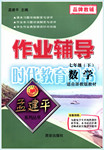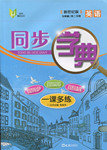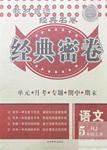题目内容
Kiss crisis, hug horrors and the UK's handshake headaches
Greeting someone, saying goodbye – these situations fill me with unease. You have a second to make a dangerous decision. One peck (轻吻)? Two pecks? Three? No kisses at all? Why, I think, as I crash into the other person’s face, why can’t it be as simple as a handshake?
A survey by the soap company Radox in May showed one in five Brits now feels a handshake is “too formal”, according to the Daily Mail. Some 42 percent said they never shook hands when greeting friends. For one third of people the alternative was a hug, for 16 percent a kiss on the cheek.
British people are known to be reserved (保守的) – unfriendly, some would say. Handshakes used to work for us because we didn’t have to get too close. But the super-British handshake is no longer fashionable. We want to be more like our easygoing Mediterranean neighbors who greet each other with kisses and hugs.
The trouble is, we still find it a bit awkward. What does a married man do when greeting a married female friend, for example? How should someone younger greet someone older?
Guys don’t tend to kiss one another; my male friends in Britain go for the “manly hug”, taking each other stiffly (不自然地) in one arm and giving a few thumps on the back with words like “Take it easy, yeah?”.
The biggest questions, if you do decide to kiss, are how many times and which cheek first. Unlike the French, who comfortably deliver three, our cheek-pecks usually end in embarrassed giggling (咯咯笑): “Oh, gosh, sorry, I didn’t mean to kiss you on the lips, I never know where to aim for first!”
But then it’s never been easy for us poor, uncomfortable Brits. Even the handshake had its problems: don’t shake too hard, but don’t hold the other person’s hand too limply (无力地) either, and definitely don’t go in with sweaty hands.
Maybe it’s better to leave it at a smile and a nod.
45. What is the article mainly about?
A. Origin of the traditional British way of greeting someone.
B. New trends and problems that Brits have with the way they greet people.
C. Why the author feels uneasy when greeting someone or saying goodbye.
D. Differences in greetings between Britain and other Western countries.
46. What did the survey by the soap company Radox show?
A. It is now considered unfriendly to greet friends with a handshake in Britain.
B. A kiss on the cheek is becoming the most popular form of greeting in Britain.
C. Most Brits no longer offer to shake hands with those they meet.
D. More and more Brits prefer to be greeted with a hug or kiss.
47. The underlined word “awkward” in paragraph 4 is closest in meaning to ______.
A. not helpful B. too informal C. quite embarrassed D. very interesting
48. Which does the author think might be the safest form of greeting for a British person?
A. A hug. B. A smile and a nod. C. A handshake. D. A kiss on the cheek.
49. Who wrote the article?
A. A British writer. B. An American writer. C. A French writer. D. A Chinese writer.
DCBAA

 作业辅导系列答案
作业辅导系列答案 同步学典一课多练系列答案
同步学典一课多练系列答案 经典密卷系列答案
经典密卷系列答案
| |||||||||||||||||||||||||||||||||||||||||||||||||||||||||||||||||||||||||